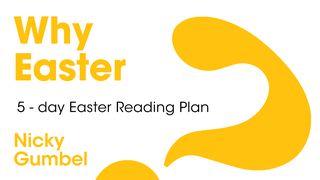30 Days in the PsalmsSýnishorn

Day #12: Psalm 72
This psalm, associated with King Solomon, is the final one in Book II of the Psalter. A tag line follows it: “The prayers of David the son of Jesse are ended.” We’ll find other psalms associated with David scattered through Books III-V, so this addendum to Book II probably indicates that there has been a purposeful collection of David’s prayers in Psalms 42–72. (A good exercise might be to read and pray your way through all the David psalms in Book II and see what the Holy Spirit highlights for you.)
The reason Psalm 72 is associated with Solomon is because of its opening line, which King David may have prayed over his successor: “Give the king your justice, O God, and your righteousness to a king’s son” (v. 1, NRSV). The starting point for this prayer is not Solomon but God—“let the king have your justice, your righteousness.” The ensuing prayer of blessing follows an interesting pattern, one that may help us as we pray for our own leaders. First, the focus is on the king’s character, the ways that God’s justice and righteousness are recognizable in his actions. Only then are prayers lifted up for the king’s “success” in military or political spheres.
How does this prayer understand a kingly character that will reflect the justice and righteousness of the King of kings? Verse 2 lays it out as “judging your people with righteousness and your poor with justice.” This general description is then particularized in verse 4: a righteous king “defends the cause of the poor, gives deliverance to the needy, and crushes the oppressor.” The same set of qualities and actions is highlighted again in verses 12–14, where the king is portrayed as the helper of the needy, the poor, the weak, and the oppressed. The Hebrew word translated “helper” usually describes God himself—thus, the king is to act toward the vulnerable under his care in the same ways that God acts toward Israel.
The psalm ends by returning the focus to where it began: God himself (vv. 18–19). This move ensures that there will be no misplaced confidence in human leaders, even as we pray blessings over them. The extravagant terms of this prayer were never fulfilled in a human king (certainly not in King Solomon, just take a look through 1 Kings 4–11). But the good news is that they are fully on display in King Jesus, in whom dwells all the righteousness and justice of God (Colossians 1:15–20). Amen and amen (Psalm 72:19)!
Today is a good day to bless King Jesus with your praise, and to follow the pattern of Psalm 72 as you pray blessings over human leaders.
Ritningin
About this Plan

Most of Scripture is God’s Word to human beings, but the Book of Psalms records human speech to God. These prayers and songs demonstrate the determination of people of faith to remain connected to God, regardless of their circumstances. Confession, lament, pleading, thanksgiving, praise—all the elements of our communication with God are present. The 150 Psalms in the collection are divided into 5 “books.” During these 30 days, we’ll pray through 6 psalms from each book. Some will be very familiar, others perhaps less so; all will direct our gaze to the God who loves us.
More








